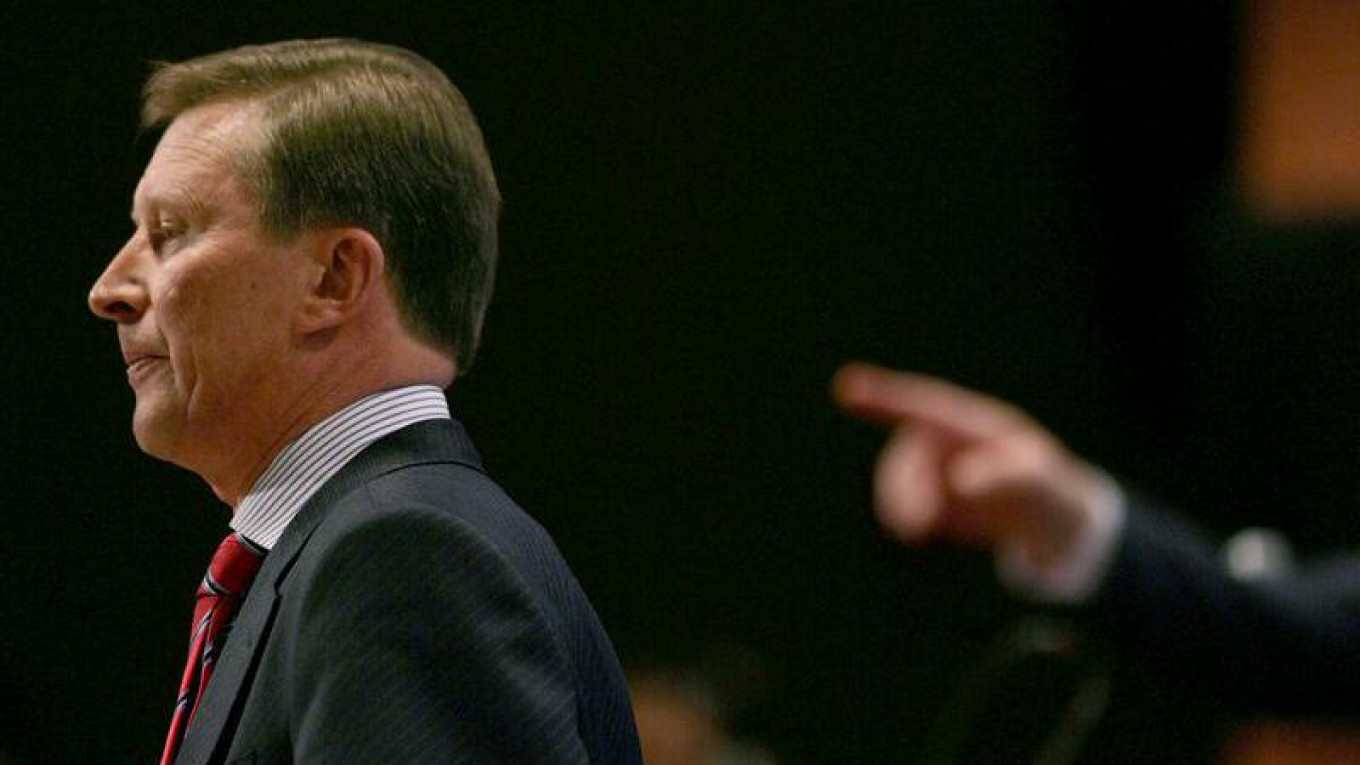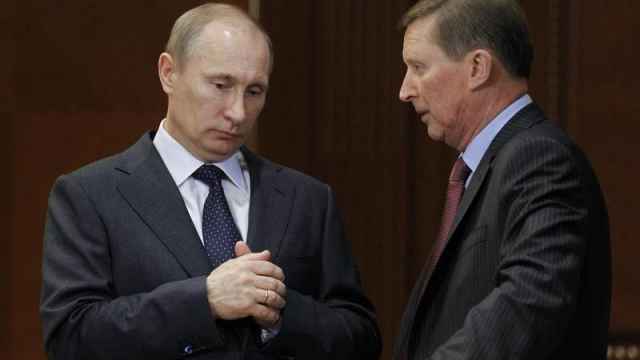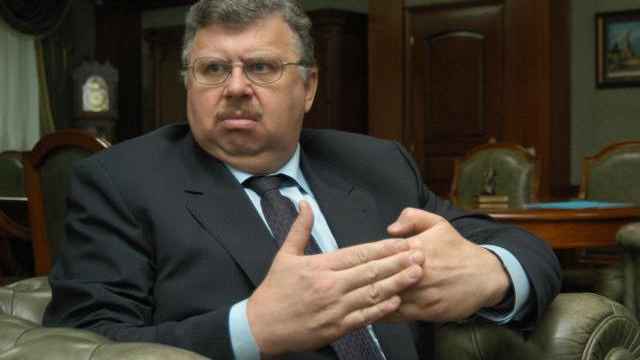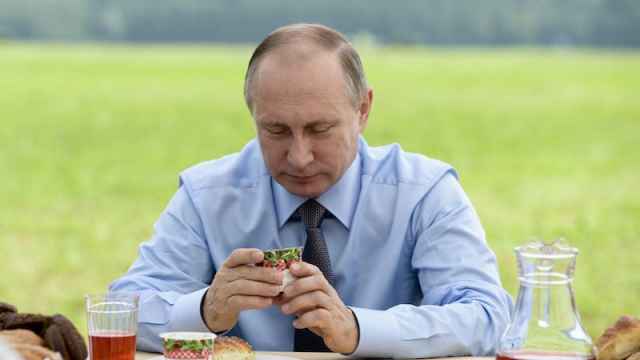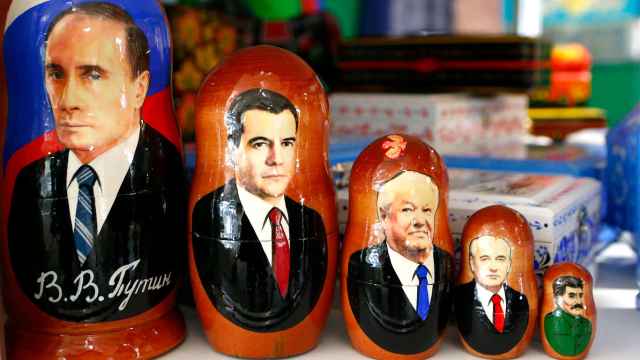In an unexpected move, Russian President Vladimir Putin replaced Friday the head of the presidential administration Sergei Ivanov with Anton Vaino, a younger and less known official.
Ivanov, thanking Putin for his praise of his work, commented that his four years and eight months in the role made him the longest-serving head of Russia’s presidential administration.
“I will strive to work just as actively, dynamically and most importantly, successfully in my new duties,” he said.
Ivanov’s former deputy, Andrei Vaino, has been named as his replacement on the recommendation of his predecessor. Ivanov said he was “absolutely convinced Vaino is ready for the job.”
The dismissal, as several Kremlin insiders told The Moscow Times, follows the logic of the recent staff reshuffle among top Russian officials. Putin is replacing his old guard with young and loyal bureaucratic figures, moving toward enforcing his personal leadership.
Replacing Ivanov
Ivanov, 63, is a longtime ally of Putin. He has known Putin since the mid 1970s, when they worked together at the KGB, the Soviet predecessor of the Federal Security Service (FSB). Ivanov started his career as a top state official when Putin came to power and was always considered a member of Putin’s inner circle.
He was appointed defense minister in 2001. In 2007, he became deputy prime minister along with Dmitry Medvedev in what was seen by onlookers as a race for the spot of Putin’s successor, fueled by the president himself. Since then, Ivanov’s relations with Medvedev have always been considered as a competition for the top spot in Russian politics.
After Medvedev became president in 2008, Ivanov accompanied Putin to the government as deputy prime minister. Later, when Putin returned to the Kremlin as president in 2012, Ivanov was appointed head of his administration.
Unlike Ivanov, Anton Vaino is purely a bureaucrat, experts say. “He is totally neutral and polite, not ready to discuss anything or ask questions. It’s Putin’s personal choice,” a source close the Kremlin told The Moscow Times.
“He is perfect, by Putin’s standards: effective, but with no personal ties to him,” agreed political analyst Stanislav Belkovsky.
Inside the Kremlin, Vaino’s appointment didn’t come as a total shock. “He would have become the next head of administration anyway,” the source close to the Kremlin said.
Rumors of the move started circulating in early spring. Ivanov has been planning to resign for some time now — it was only a matter of time, says political analyst Yevgeny Minchenko.
In addition, Putin has been dissatisfied with Ivanov for some time. New legislation on the National Guard was the last straw, the Moscow-based political commentator Konstantin Gaaze says: “The expertise and the workflow involved in drafting this legislation went wrong. As a result, the version of one of the amendments signed by Putin and officially published in the press is different from what the parliament voted for. And the Kremlin managers had to deal with the scandal.”
Vaino, 44, is the grandson of the former head of the Estonian Communist Party. Fluent in English and Japanese, he trained as a diplomat before serving in Russia’s embassy in Tokyo in the late 1990s and then at Russia’s Foreign Ministry. Since 2003 he has risen up the management structures of the presidential administration — he then made his career as chief of the presidential protocol department. Within the elite, The Moscow Times’ sources say, Vaino is closer to the head of the Rostec state-owned arms manufacturer, Sergei Chemezov — but he also quite close to Putin.
He was never seen as a political player within Putin’s circle, but, rather, as Putin’s personal assistant — comparable to his press secretary Dmitry Peskov, insiders said.
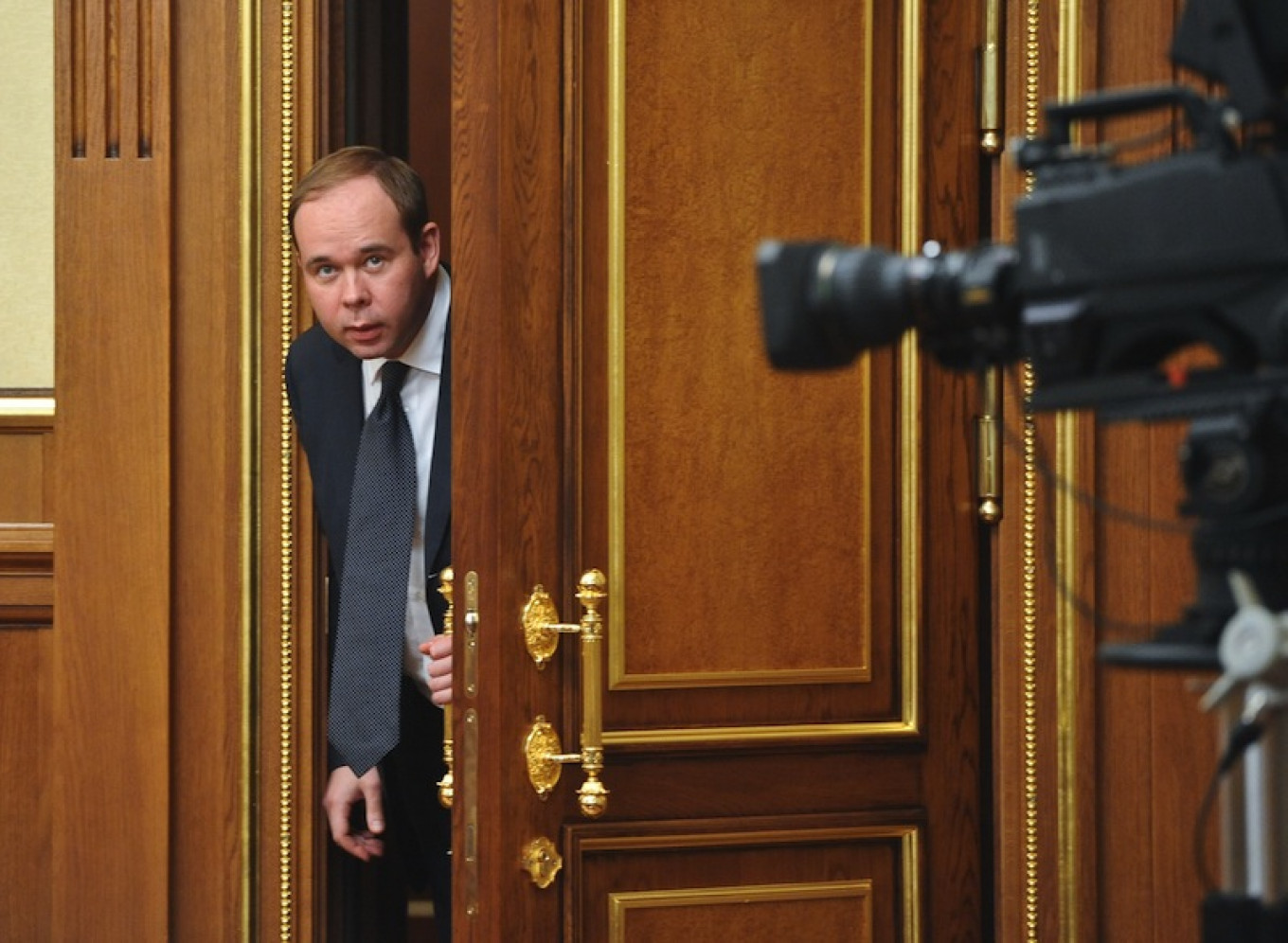
New Phase of Leadership
Vladimir Putin is entering new phase of his leadership. As a source close to the Kremlin said, the president now thinks it’s easier to do everything himself. He doesn’t need comrades anymore, he doesn’t need creative input from within his team. He needs neutral executives.
From this angle, the appointment of Vaino follows the same logic as recent promotions of Putin’s personal bodyguards Alexei Dyumin and Yevgeny Zinichev as heads of the Tula and Kaliningrad regions. His former personal bodyguard Viktor Zolotov was also promoted earlier this year to become the head of a newly formed law enforcement division, the National Guard.
“People like Vaino are part of Putin’s most inner circle, they’re always with him, working as guards or at his chancery. Yet, for them he has always been this sacred figure — not an ally, not a comrade, but a boss,” said political analyst Alexei Makarkin.
“It’s the changing of guard. He is tired of the old-timers,” a source said. Ivanov’s dismissal and Vaino’s appointment are part of the trend that first became clear after the unexpected sacking of a Putin’s longtime friend and ally Vladimir Yakunin, head of Russian Railways, last year. His other long-time companions like the head of his personal security Yevgeny Murov and the head of Federal Drug Control Service Victor Ivanov also had to leave earlier this year. “Ivanov coalesced with others in the system, he became overgrown with interests and loyalties within the team. Putin does not need that anymore,” a source close to the Kremlin told The Moscow Times.
“Putin is replacing old friends with servants — people he trusts that are not burdened by personal friendships with him and don’t remember the times when he was not the leader of the country,” said Belkovsky.
Early Elections?
Putin needs more room for quick and easy decision making, which has been getting more and more problematic within his circle and the elite, insiders said. That’s why he is removing old acquaintances.
As Ivanov was dismissed, speculation grew that Vladimir Putin might be preparing for an early presidential election, currently scheduled for March 2018.
This possibility has been floated for over two years due to the worsening economic situation. Last year, former Finance Minister Alexei Kudrin publicly suggested moving the presidential election and starting a new program of reforms straight after them. Kudrin has a reputation of being close to Putin. Earlier this year Kudrin was appointed as deputy head of the presidential economic council in order to come up a program for restarting economy.
The reshuffling campaign may also be a sign of the Kremlin preparing for early presidential elections, Makarkin says. “It would make sense for them to move for early elections in the light of recent statements from the Finance Ministry, which essentially predicted running out of money by 2017,” he said. “In order for that not to happen, unpopular reforms are needed. It would make sense to carry out those reforms not before the elections, but after them.”
This theory is quite credible, adds political analyst Gleb Pavlovsky. “Now there is nothing really holding the authorities back, they can easily schedule presidential elections as early as tomorrow. And again, it would be part of the trend of inexplicable decisions — everyone will struggle to explain this move,” he says.
However, Russian law currently forbids a president who resigns before his term expires to run for early elections.
Moreover, it’s too early to talk about it yet, a source close to the government says: “What we are seeing now are attempts to improve the manageability of the system. A decision [regarding the possibility of early elections] is the next step for Putin.”
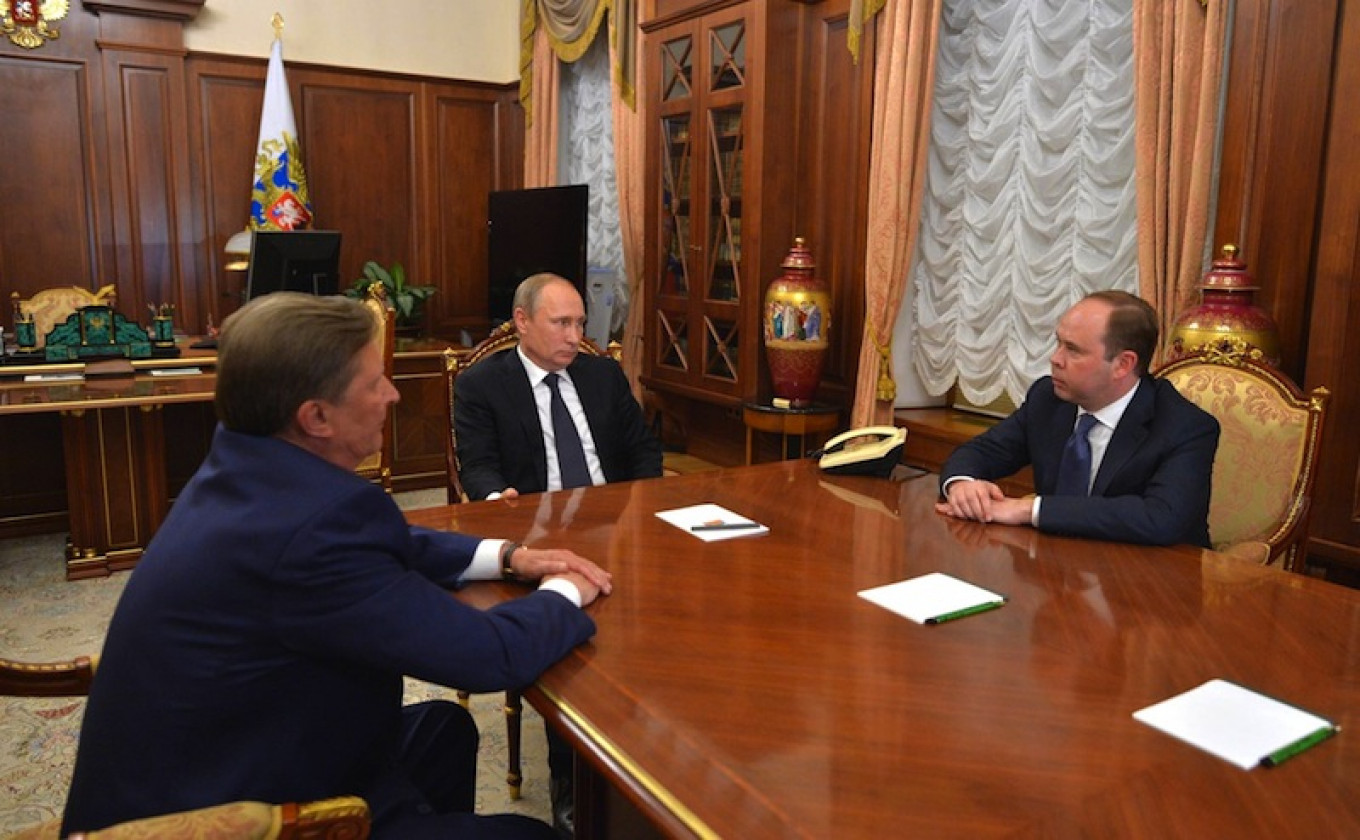
A Message from The Moscow Times:
Dear readers,
We are facing unprecedented challenges. Russia's Prosecutor General's Office has designated The Moscow Times as an "undesirable" organization, criminalizing our work and putting our staff at risk of prosecution. This follows our earlier unjust labeling as a "foreign agent."
These actions are direct attempts to silence independent journalism in Russia. The authorities claim our work "discredits the decisions of the Russian leadership." We see things differently: we strive to provide accurate, unbiased reporting on Russia.
We, the journalists of The Moscow Times, refuse to be silenced. But to continue our work, we need your help.
Your support, no matter how small, makes a world of difference. If you can, please support us monthly starting from just $2. It's quick to set up, and every contribution makes a significant impact.
By supporting The Moscow Times, you're defending open, independent journalism in the face of repression. Thank you for standing with us.
Remind me later.


